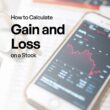Imagine an economy struggling to grow, with businesses slowing down and people hesitant to spend. To encourage borrowing and investment, the central bank takes action.
One tool often used is quantitative easing (QE)—a policy that helps inject liquidity into the financial system to stimulate economic growth.
In the blog, I will show you what quantitative easing means and how it can affect the stock market.
What is Quantitative Easing?
Quantitative easing is a monetary policy where a central bank buys government bonds or other financial assets to increase the money supply and encourage lending and investment. This process helps lower interest rates and makes borrowing cheaper, stimulating economic activity.
The Central Bank of Nigeria (CBN) doesn’t create new money but uses various liquidity management strategies to influence economic conditions. While the CBN hasn’t implemented QE exactly as seen in the U.S. or Europe, similar measures have been used to stabilize the financial system—particularly in the form of direct deficit financing of the government.
How Does Quantitative Easing Work?
The Central Bank Buys Assets: The central bank injects money into the economy by purchasing government bonds and other financial assets from banks and large institutions.
- Banks Have More Money to Lend: With extra cash, banks are encouraged to lend more to businesses and individuals.
- Interest Rates Drop: Since there’s more money available, borrowing becomes cheaper, making it easier for businesses to expand and individuals to invest.
- Investors Seek Higher Returns: Lower interest rates mean investors look for better opportunities, often turning to the stock market.
- Stock Prices Rise: As more investors flood the market, stock prices increase due to higher demand.
The Impact of QE on the Stock Market
Quantitative easing has a direct and indirect effect on stock markets. Here’s how:
1. Boosts Stock Prices
When QE is in full swing, money flows into the financial system, and investors, looking for higher returns, start investing in stocks. This increases demand and pushes stock prices higher.
2. Encourages More Investment
Lower interest rates make saving less attractive and borrowing cheaper. As a result, more individuals and businesses invest in stocks rather than keeping their money idle in banks.
3. Creates a ‘Wealth Effect’
As stock prices rise, investors feel wealthier and more confident. This can lead to increased spending and business investments, which further supports economic growth.
Does QE Affect Nigerian Investors?
Even though Nigeria’s Central Bank doesn’t implement QE in the same way as Western economies, Nigerian investors still feel the effects through global stock markets.
If the U.S. Federal Reserve implements QE, global stock markets—including those where Nigerians invest through platforms like Trove Finance—see increased activity. Also, Stocks listed on foreign exchanges (like the New York Stock Exchange (NYSE) or Nasdaq) tend to rise when QE happens, affecting Nigerians who invest in U.S. stocks.
Lessons from Nigeria’s Monetary Policies
Although Nigeria has not implemented QE directly, the CBN has engaged in aggressive deficit financing, similar to how QE injects liquidity into the system. For example:
- CBN’s direct lending to the government: Reports show that the CBN has provided excessive funding to the government through deficit financing, raising concerns about inflation and naira stability.
- Rising Cash Reserve Requirements (CRR): To counter the effects of money injection, the CBN has continuously increased the CRR for banks, restricting private sector access to credit—a policy that mirrors the potential downsides of QE.
- Inflation and Naira Volatility: Despite these measures, inflation has remained high, foreign investments have declined, and the naira has experienced significant depreciation, demonstrating the risks of excessive liquidity injection.
These policies have had unintended consequences, including discouraging private-sector growth and reducing foreign investment confidence. Similar risks exist when QE is mismanaged in other economies.
What Happens When QE Ends?
QE doesn’t last forever. When central banks stop injecting money, the effects reverse:
- Stock markets may slow down or even decline as investors adjust to higher interest rates.
- Borrowing costs rise, reducing the money flowing into the stock market.
- Inflation control measures may lead to market volatility.

Read Also: Stock Market Terms and Definitions for Beginners
Conclusion
Quantitative easing is a tool used by central banks to encourage economic growth, but it also has side effects. While it can drive stock markets up, it can also create bubbles and weaken currencies. Whether you invest in local or global stocks, understanding QE helps you make informed decisions.
Want to invest smartly despite global economic shifts? Trove Finance gives you access to both Nigerian and international stocks so you can navigate changes like QE with confidence!

